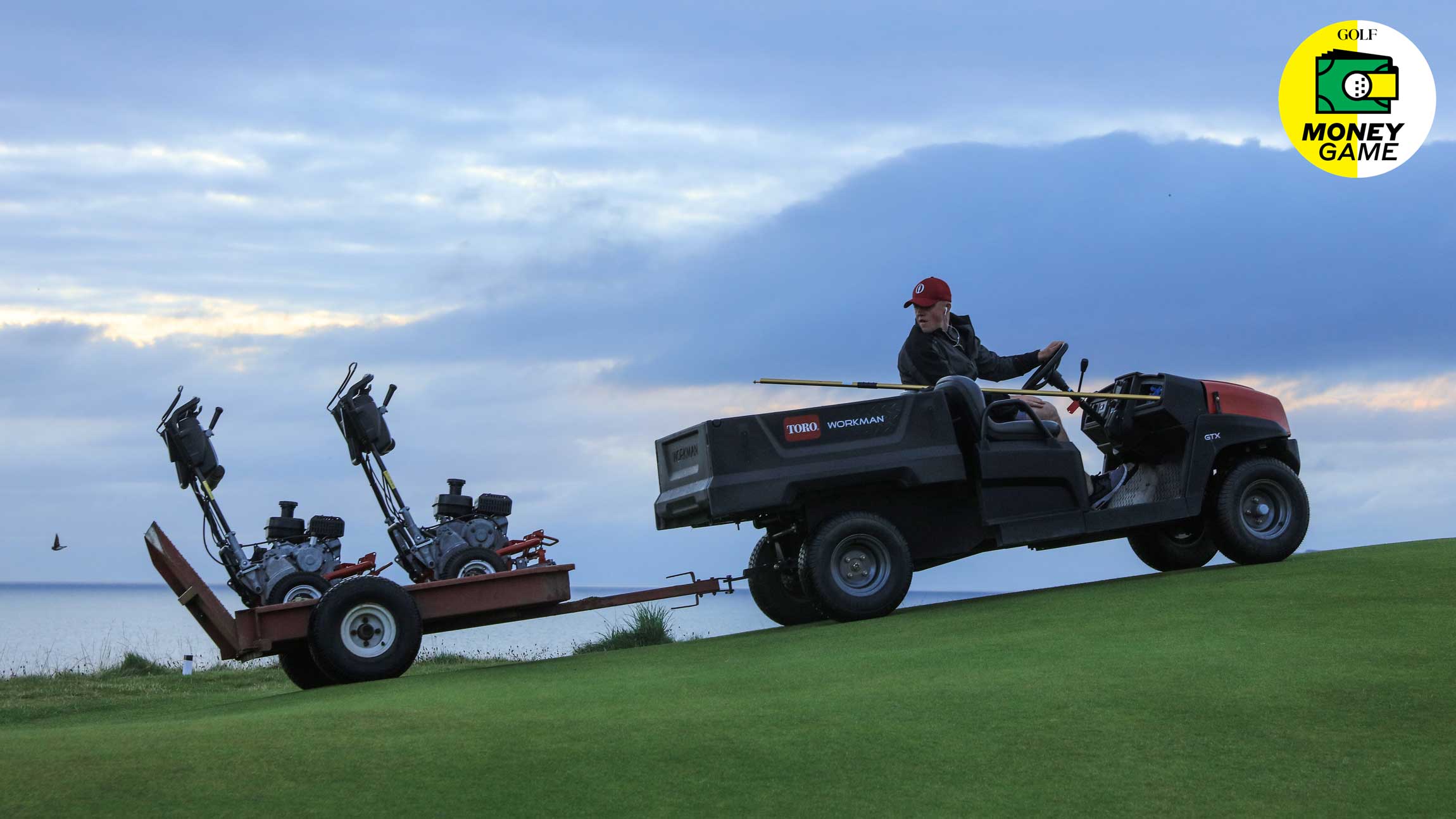If you’re like many golfers, you don’t bother tracking every cent you spend on this beguiling game. Green fees? Maybe. But what about travel, clubs, accessories, lessons, wagers, hot dogs at the turn? The best you could probably give us is a guesstimate.
Superintendents don’t have that luxury.
On top of daily duties like mowing greens and cutting holes, supers also draw up detailed maintenance budgets that cover everything from machinery and staffing to fertilizer, fuel and fungicides.
So, what does it cost to keep up a course?
The answer varies with a range of factors, such as climate, competition and type of club.
But every super knows his or her number.
With help from Terry Buchen, a longtime superintendent-turned-industry consultant, and data from the Golf Course Superintendents Association of America, here’s a birdie’s-eye view of the averages annual expenses for 18-hole courses in the United States.
Total Maintenance Costs by Course Type
Municipal: $621,190
Semi-Private: $567,346
Private: $1,083,647
Daily Fee: $556,613
Overall Average: $810,254
Labor Expenses by Course Type
Municipal: $349,839
Semi-Private: $312,476
Private: $630,104
Daily Fee: $294,456
Overall Average: $463,163
Fun Fact: According to Buchen, public-access courses typically have 12 to 18 maintenance employees, which includes seasonal employees where applicable. At private clubs, the typical range is 18 to 25 maintenance staffers.
Largest Expense Categories
Labor: 56.74%
Fertilizer: 5.05%
Equipment Lease Expense: 5.01%
Repair Maintenance/Equipment: 4.56%
Fungicides: 4.28%
Fuel and Lubricants: 2.65%
What about water?
Water is a significant maintenance cost as well, but not all courses have to pay for it, relying instead on sources such as wells, ponds, creeks and rivers. According to a GCSAA survey, 26 percent of courses buy water, at a 13 percent cost of their maintenance budget. Not surprisingly, water costs vary widely by region. The average national outlay is $107,000 annually, with the most expensive region being the Southwest, where courses spend an average of $238,000 a year.
How much does equipment cost?
Equipment costs are often based on engine horsepower. The larger the engine, the more expensive the machine. Rough mowers, for instance, are expected to fetch about $100,000 in 2023, with fairway mowers coming in at around $80,000; triplex mowers at $50,000; and walk-mowers at $20,000. An exception to the horsepower rule is sprayers, which, depending on the size of the tank and the built-in technology, can cost about the same as a rough mower.
To buy or to lease?
When it comes to maintenance equipment, that is the question. Buchen says the answer typically depends on whether that equipment is used every day, or every now and then. Every-day machines, such as mowers, sprayers, and riding-bunker rakes, are typically leased for 3 to 5 years, and then replaced when that expires. Equipment that is not used every day — think aerifiers, vacuums, over-seeders, dump trucks and such — is typically purchased. A course starting from scratch needs a lot of equipment. Buchen says that a new private club typically spends $2 million-plus to get itself fully equipped.
Sweating the small stuff
Course accessories, like flags, tee markers and ball washers, don’t qualify as a major expense. But every little bit adds up. On average, courses spend roughly $4,000 a year on these items.
